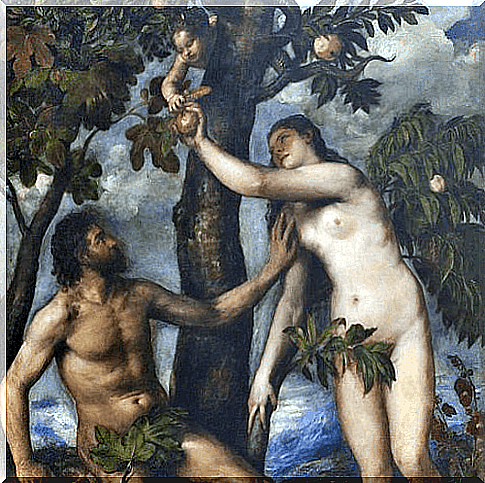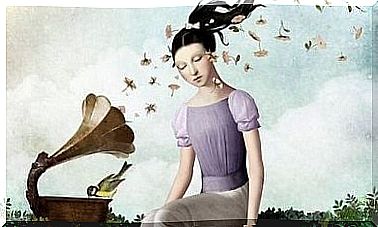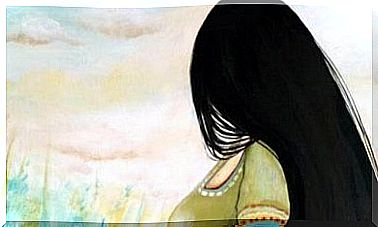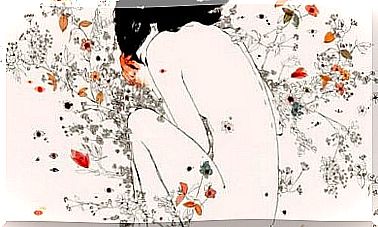Kierkegaard’s Existential Anguish

Kierkegaard, the predecessor of authors such as Heidegger, Nietzsche or Sartre, is considered the father of existentialism and the author of the concept of existential anguish. He was the first to postulate the idea that the most important thing for a human being is his or her existence in the world. That essence of which Kant, Hegel and others spoke is unknowable and therefore would not be the object of knowledge and truth.
Kierkegaard had an approach towards the human being based on self-realization. He lived in the period of the Industrial Revolution, which had transformed the human being into insignificant. The work of a craftsman, for example, could be infinitely replicated by a machine that could work for a long time with less effort and produce more than the craftsman.
If we think of typically human activities, such as writing poetry or painting, and look at technological advances, we will realize that the alleged talents of the human being, the result of his emotions, are perfectly reproducible by machines whose artificial intelligence far exceeds our; even if emotions are (still) lacking.
The Industrial Revolution and the Technological Revolution place the human being in an indeterminate place where it is no longer essential. And it is here that man begins to have identity crises that lead him to feel deep anguish. If everything that was “essentially” ours can be done by a machine, then what is left to man? What defines it? Why are we alive?

The existential anguish
Kierkegaard’s existential anguish arises from a profound disillusionment with life. Kierkegaard stood above the moral and ethical precepts of his time, but like any mortal, he had fallen into the clutches of disaffection. This prevented him from having an optimistic view of existence.
The Danish philosopher, theologian and writer started from a concept that surprised a lot at the time: truth is subjective. Precisely for this reason, he argued that individual truths, although different and even contrary, cannot be administered, governed or judged by another subjectivity. Men cannot communicate with each other. The only possible direct relationship is that between man and God.
This way of thinking is more understandable if we take into account the fact that Kierkegaard was critical of Christianity, not as a creed, but as a politicized system placed at the service of man (especially by those who were part of the same church). He was against the idea of having intermediaries to be able to speak with God.
According to Kierkegaard, it is perfectly normal to doubt that God really exists. We do not have this certainty. This idea, so repudiated by Christianity, is for the author an element that concerns faith. Faith is faith because it doubts. If not, it would be knowledge.
The anguish against atheism
Kierkegaard’s main argument against atheism is that believing in God is a leap towards faith. It is a decision that is made even if there is no proof or certainty. The unknown consequences of that act of faith we make when we believe are what causes existential anguish.
As an example, we can take the innocent Adam biting the apple tempted by the innocent Eve who, in turn, bites the apple tempted by a not so innocent snake. In one act, by biting the fruit, Adam goes from being innocent to being a sinner. How could Adam know that the consequences of his action would be what we know and would give birth to “original sin”?
Neither Adam nor Eve had the slightest idea why God forbade them to eat such a delicious fruit. However, they knew what they were doing was forbidden, but they didn’t know why.
Later, they learned that the tree from which they had taken the apple was the tree of good and evil and that, when we know, we not only know good but also evil. In this way, we can decide whether to act maliciously.

Conclusions
Existential anguish precedes the consequences of an ethical decision and we can make ethical decisions because we are free. This freedom we enjoy is generated in the moment before the leap of faith.
The purpose of Kierkegaard’s philosophy is not to formulate a theory about reality, about the world or about man, but to convince the human being to take charge of his own life both ethically and from a practical point of view.
The truth that man ignores is not of an objective nature, but subjective and concerns the way of existence of each individual.









